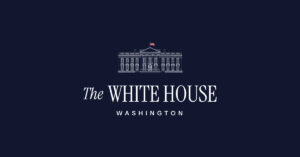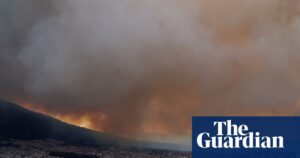
The U.S. State Department has revoked the visas of English rap punk duo Bob Vylan following their controversial performance at the Glastonbury Festival, where they allegedly led chants supporting Gaza and calling for violence against Israeli forces. The decision was announced on Monday, citing the group’s “hateful tirade” as the primary reason for the ban.
State Department Deputy Secretary Christopher Landau stated, “Visas for Bob Vylan and his group of the same name were revoked in light of their hateful tirade at Glastonbury, including leading the crowd in death chants.” The performance, which took place on Saturday, included chants of “free, free Palestine” and “death, death to the IDF” (the Israel Defense Forces), as captured in videos circulating on social media.
Controversial Chants and Their Implications
The phrase “from the river to the sea,” used by Bob Vylan during the performance, has historical significance. It refers to the lands between the Jordan River and the Mediterranean Sea and has been a point of contention, especially after the October 7, 2023, attacks on Israel by Hamas. While some pro-Palestinian activists view it as a call for peace, others see it as hate speech.
In response to the performance, Somerset Police have assigned a detective to investigate whether any hate crime statutes were violated. “We have received a large amount of contact in relation to these events from people across the world and recognize the strength of public feeling,” a police department statement noted. “There is absolutely no place in society for hate.”
International and Domestic Reactions
The U.S. State Department’s decision has sparked discussions about the balance between freedom of expression and the promotion of hate speech. “Foreigners who glorify violence and hatred are not welcome visitors to our country,” Landau added, underscoring the U.S. government’s stance on the matter.
Bob Vylan, whose real name is Pascal Robinson-Foster, was set to begin a U.S. tour on October 24, with performances planned in cities such as Seattle, Chicago, and Los Angeles. However, representatives for these venues have not yet commented on the visa revocation.
Messages left for Robinson-Foster have not been returned, and the artist has not directly addressed the Glastonbury performance in public statements. Instead, he shared a personal message on social media about his daughter advocating for healthier school meals, emphasizing the importance of inspiring future generations.
Historical Context and Expert Opinions
The phrase “from the river to the sea” has been a rallying cry in the Israeli-Palestinian conflict for decades. Its resurgence on social media and in public discourse has reignited debates over its meaning and implications. Experts suggest that while the phrase can be interpreted as a call for liberation, its use in certain contexts may incite violence.
“The phrase is deeply polarizing,” said Dr. Sarah Klein, a Middle Eastern studies scholar. “It can be seen as a call for peace or an incitement to violence, depending on the context and intent.”
The State Department’s decision to revoke Bob Vylan’s visas highlights the ongoing challenges in addressing hate speech while respecting artistic expression. This incident serves as a reminder of the delicate balance between freedom of speech and the potential for words to incite violence.
Looking Ahead
As the investigation by Somerset Police continues, the outcome could have broader implications for artists and performers worldwide. The case underscores the importance of understanding the power of words and the responsibilities that come with a public platform.
While Bob Vylan’s U.S. tour remains uncertain, the discussion surrounding their performance at Glastonbury is likely to continue, raising questions about the role of art in political discourse and the boundaries of free expression.
The situation is evolving, and further developments are expected as authorities and stakeholders navigate the complex intersection of art, politics, and international relations.






